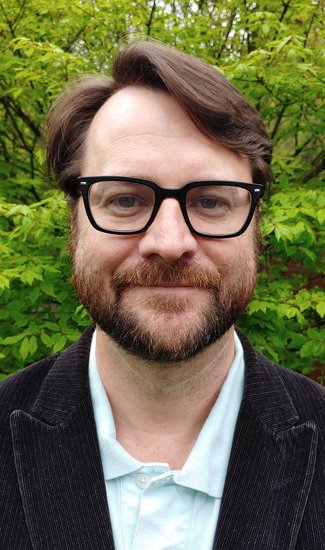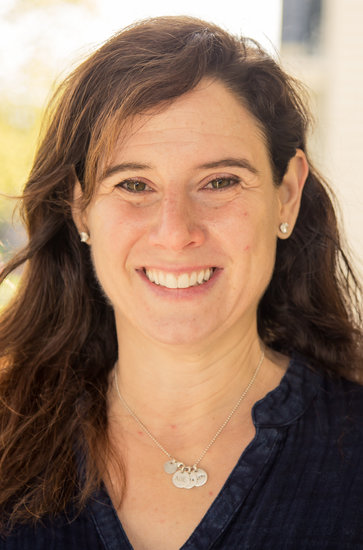Three candidates vie for one seat on the Voorheesville School Board
VOORHEESVILLE — On May 21, Doreen Saia faces two challengers for her board seat, Sean Fell and Rachel Gilker.
Saia, currently the board’s president, is looking for her second full four-year term. Gilker is making a second run for the board (she was unsuccessful in a 2016 bid) while Fell is making his first run for public office.
School budget and board elections typically attract few voters. Although this year, voters will be deciding on a $25.4 million budget, which would increase their property taxes by 2.96 percent, the maximum the state will allow the school district to levy, which comes after a school-budget season that saw cuts to programs and personnel because of a surge in prescription-drug costs.
In last year’s election, 655 people voted; the two unopposed board candidates each received around 430 votes. In an attempted show of strength this year, Gilker returned her petition with over 350 signatures; the minimum needed was 25. In addition, she has garnered the support of the teachers' union (see related story).
The candidates were asked about relevant background, why they are running, and what they think the board is doing well and what it can improve upon. They were also asked about these issues:
— New super: After superintendent Brian Hunt announced that he would retire following graduation in June, the school board asked for guidance from the Board of Cooperative Educational Services with the search for a replacement. BOCES made the search confidential saying this was necessary because of the small pool of candidates; 19 qualified candidates applied.
— Should the search for a new superintendent have been a public process; why or why not?
— Given the opportunity, what one question would you ask a candidate for superintendent?
— Budget: The school board adopted a $25.4 million budget for next year, staying under the state-set levy limit. But substantial last-minute cuts had to be made to fill an unexpected $620,000 gap caused largely by soaring prices for maintenance prescription drugs. To pay for the skyrocketing cost of prescription drugs, cuts had to be made elsewhere.
— The school district has a serious problem with its prescription-drug plan. What should be done to rein in costs?
Which cut made by the board will have the deepest impact on the greatest number of students?
— Should the board have voted to levy over the maximum amount allowed by the state?
— The district cut the school resource officer program after one year; is student safety at risk because of the cut?
— Lawsuit: Robert Baron, long-time coach for the girls’ varsity basketball team sued the district to get his job back and to restore his reputation. He alleges that the district misled him into resigning.
— Was Coach Robert Baron unfairly pushed out of his job?
— What should be done about Baron’s lawsuit against the district?
— Was Baron’s reputation besmirched?

Sean Fell
About five years ago, Sean Fell and his wife, Dr. Kyla Frohlich, a native of Voorheesville, were living in New Orleans and it was understood, he said, “You don’t send your kids to public school in New Orleans.”
And so, after the couple compiled all of the data and crunched all the numbers, it was decided that Voorheesville, with its track record of educational excellence and its Blue Ribbon schools, would be where the couple would make their home, he said.
It was budget cuts, specifically the loss of a kindergarten teacher for the 2019-20 school year — his son enters kindergarten in the fall — that made Fell decide to run for school board. “But I’m going to fight for everybody’s children just as hard as I fight for my own,” he said.
In addition, Fell said that his wife had been approached by a teacher to gauge his interest in a board run.
Fell, a behavioral psychologist, added that the opportunity to work from home has allowed him to spend more time with his children — he has two — and to “really dedicate myself … to give back to this community; they’ve already done so much for us.”
“I’m coaching soccer, I’m coaching baseball, and involved with everything that goes on in my children’s lives, and I have the ability and time to [run for the board],” Fell said, adding that now is the time to “step up.”
As for the school board, Fell said he appreciated how hard the group of volunteers has worked to put in place a very difficult budget for next year. “That’s the big thing right now, they’re putting in the hours that need to be put in, in order to get the answers for how are we going to solve this budget [problem] moving forward,” he said.
Fell said that he also appreciated the work the board did when concerns were raised last year about the number of sports offered to girls compared to boys. Adding that his daughter recently began playing for the newly-created lacrosse team. “I really feel like that’s something that they’re doing correct, too,” he said. “Giving more opportunities to girls to get involved with sports, I’m all for that.”
But, Fell said, one way in which the board erred was a lack of foresight when it came to health-care costs.
“Health-care costs, prescription-drug costs, is the discussion that we as a nation have had for the past three presidential election cycles,” he said. “Everybody knew this was going to be a problem coming, and I feel like it was just kind of ignored.”
It’s not so much the current school board on which Fell lays the blame; it goes back to when prior union contracts were signed, he said. And, now, as the district and its bargaining units move forward, he said, that issue will have to be addressed.
Voorheesville, The Enterprise pointed out to Fell, has had low health-care costs for a long time; the prescription-drug problem landed at the district’s feet only in March. Prior to that, the district saw annual prescription-drug cost increases of zero, zero, and 10 percent.
“This isn’t a surprise to anybody in the entire nation,” Fell responded. “This whole health-care issue and prescription-drug costs should have been dove into a little more deeply, especially as we’re getting more retirees and people are living longer.”
But, he said, the only thing to do is move forward and build a relationship with the new superintendent, and be the school board’s budget hawk. “Because, like I said, my work experience with nonprofits, I know what it takes to actually stretch a dollar,” Fell said.
On having a public search for the next superintendent, he said, “On the one hand, you definitely want to have it be a public search, and have it available to everybody. Because, I mean, when you get right down to it, the people who are actually hiring the superintendent — its not the school board,” he said, it’s the taxpayers who voted those school-board members into office.
Fell proposed a two-part compromise.
The need to hold a confidential search is understood, he said, but after the winnowing of candidates, perhaps, the process could be opened to the public, for some kind of “meet the candidates” forum. Because, he reiterated, “Ultimately, it’s not the school board who’s hiring anybody. It’s the taxpayers and the students.”
Fell’s own question to a candidate for superintendent would be, “Moving forward, how are you going to raise funds for the school?”
Leaning on his background as a grant writer — and fully aware that grant-writing is in the job description of the director of curriculum — Fell proposed a low-risk, high-reward solution: a consultant grant writer. “It’s very, very cheap labor,” he said.
The way it works, Fell said, is that the grant writer receives a nominal fee, but really gets paid if he or she writes a winning grant, receiving a percentage of the award. The upside is that the district will have someone “blasting” out grant applications, Fell said, whereas, for the director of curriculum, grant-writing is just one of many items in her job description.
Superintendent Brian Hunt on Friday told The Enterprise that he’d “have to ask the lawyer” if it would be legal for a public-school grant writer to get a cut of a grant award, and added that the Board of Cooperative Educational Services offers grant-writing services for a fee.
To rein in prescription drug costs, Fell said that, with ongoing contract talks, some kind of concession will have to be asked of the teachers’ union.
He pointed to the April school board meeting, where Francis Rielly, Voorheesville’s assistant superintendent for finance and operations, said that employees in other school districts have prescription drug monthly premiums that are closer to $200 as opposed to the $125 per month Voorheesville employees pay, which is because Voorheesville has, historically, had lower rates than neighboring school districts.
“It’s not a small thing to ask from people,” Fell said of asking teachers to increase their contribution to their monthly premiums. “But currently, we’re just under every other school district.”
It wasn’t the largest cut in terms of dollars, Fell said, but the loss of Alan Fiero, the elementary school science-lab coordinator, will be detrimental to the greatest number of students. Eliminating anything associated with science, technology, engineering, and mathematics (STEM), especially very early on, he said, is going to affect students when they move into high school and, then, beyond.
Alan Fiero is the husband of teachers' union president, Kathy Fiero.
When asked if the board should have voted to levy over the maximum amount allowed by the state, Fell responded, “The answer is just no.”
With his background as a behavioral psychologist, Fell said of the loss of the school resource officer position, “I feel like programs — time and time again — in my field have shown — and we’ve been screaming this from the mountaintops — that early intervention programs and crisis-management programs, dollar for dollar, will trump police budgets every single time.
“And so, that was one thing that I did not agree on [the hiring of a school resource officer], and that also gave me some impetus to run as well; there was only one dissenting vote on the board when they decided on an SRO.”
About Robert Baron’s lawsuit, Fell said, “I honestly have zero idea about any of that, other than hearsay. And I wouldn’t want to comment on something that I know so little about.”

Rachel Gilker
Rachel Gilker is running for the board for the second time, she said, “for a lot of different reasons.” Campaigning alongside Patricia Putman in 2016, the pair lost to current board members Jeannie McDonnell and Diana Straut.
“I feel like this is the right time to run,” Gilker said. This fall, each of her three children will be attending each of Voorheesville’s three schools. “So it just seems like an appropriate time to really have a scope of all three schools,” she said.
Gilker moved to the area in 2011. She has a doctoral degree in soil science from the University of Maryland. In 2013, she founded an online magazine for pasture-based farmers; she left the magazine last year, but continues to work with dairy farmers.
Gilker said that she has spent a lot of time attending meetings, volunteering in the classroom, and coordinating the Good Eats program, and that, now, “I feel ready to serve…”
Moreover, she said, with three untenured principals and a new superintendent on the way, now is the time, “I mean, I’ve been on the audience side,” but the school board should have a new voice as well.
Gilker is a constant presence at school-board meetings, and, along with Putnam, engages the board more than any 10 parents combined. So, there’s something to be said for being the gadfly, questioning the board about its decision-making, asking questions that others may not be willing to ask.
Why not continue that role as the outside agitator who may be affecting more change, to paraphrase Lyndon Johnson, outside of the tent rather than inside?
“I would still be asking the challenging questions,” Gilker said. When she was talking to residents as she campaigned, Gilker said she was asked if she would be just another one in “those” 7-to-0 votes (the school board often votes in unanimity). “I will vote 7-to-[0] if I think what is being voted on is correct; I will vote 6-to-1, if I don’t. I will vote the way I see fit,” she said.
And, while she may be one of the few parents who is vocal at school-board meetings, Gilker said, “There are a lot of parents who are keeping an eye on things; I might just be the person who’s willing to stand up.”
Listening and explaining, especially when it came to the budget, Gilker said, is something that the board has improved upon over previous years. She said that the extra budget forums; use of SNN, the school news notifier, an email notification for parents; and even making printed agendas available at board meetings have all helped to show the public some of the internal workings of the district.
“So, I feel like there’s definitely been work towards transparency,” Gilker said.
On reining in prescription-drug costs, Gilker said that the way they are being paid for needs to be changed. “Right now, we’re self-insured and it clearly worked when Amoxicillin was what we were paying for it,” she said, but that doesn’t work when the district is paying for drugs that were created by the scientific advances that “we hope our students are part of…”
So there’s a certain irony, Gilker said, about losing the science-lab coordinator in the elementary school.
But there needs to be something worked out between the district and its bargaining units, she said. For a long time, the model was that teachers had lower pay but great benefits, Gilker said, which worked when life expectancy was lower.
So, Gilker said, “In terms of restructuring, I think that there’s more of an opportunity to do that when the board is willing to meet with the teachers, and say, ‘We’re all working so that we can make the kids education great.’”
Gilker also wants to make it clear that, even though she has the endorsement of the Voorheesville Teachers’ Association, she has no intention of being the union’s “patsy.”
Gilker was hesitant when asked what the board needed to improve upon, saying, “I don’t want to be critical of what’s going on, these are all volunteers … I have [the] utmost respect for how much — not just time — but just energy and emotional energy as well” expended to do the job.
But she did say that “transparency would be one thing,” explaining why some decisions are made the way they are. Using as an example a parent who spoke at multiple meetings about wanting the school district to send his child to Tech Valley High School in Albany.
“When that decision was being made about Tech Valley, it wasn’t just the board, it was [Superintendent Brian] Hunt was saying, ‘Well, no, he can’t.’ And it’s like: Because why not?” Gilker asked. “And so, explaining the process that went into that decision, and, instead, there was a statement of: ‘Well, we offer everything that Tech Valley does.’ And it’s like: I don’t think we do — I really don’t think so.”
In addition, for the sake of transparency, Gilker said, the district could tape its own school board meetings or live stream them on Facebook.
When asked if the search for a new superintendent should have been a public process, Gilker answered, “I think this honestly exceeds the information that I know. I don’t think that I, as a member of the public, was privy to all the information BOCES was sharing with the board. And so, I can’t really answer that.”
But if she had the opportunity to speak to potential candidates, she would ask: “Where do you see Voorheesville going over the next five to 10 years; and what do you think it’s going to take to get us there, including with what’s wrong with us now and what’s right with us now?”
As for the cuts to the budget and which one will end up having the deepest impact on the greatest number of students, Gilker’s first response was: “I’d have to do some serious calculation,” but then she said that the loss of Alan Fiero, the wildly overqualified teacher’s assistant who ran the elementary school’s science lab, and the 530 students that he works with. “And he’s providing something for — $26,000 — that is unreal,” Gilker added.
One thing that could have saved Fiero’s job as well as a number of other jobs and programs, would have been for the school board to vote to ask voters for an increase in property taxes greater than the state-set limit of 2.96 percent.
When asked if the board should have made that vote, Gilker answered, “Not without a lot of conversations with the community, and only if the community was completely on board before the decision was made to do so.”
Asked how to gauge the public’s willingness to increase property taxes, she said, “You do surveys, you really publicize the heck out of it; you have meetings with different members of the community.”
She added that outreach to seniors could be done, public forums could be held, and voters could also have the option of an anonymous survey. “But you need to gauge the community’s willingness to do something like that, and gauge their understanding of what it means to do that and what it means to not,” Gilker said.
The problem with the levy limit, Gilker said, is that the small increases in revenue that the district does receive are swallowed up by non-classroom items, for example, health care. And so, it’s the students who will continue to get squeezed.
“As a community member, I would have been willing to pay for more,” Gilker said. Just this one time, given that each of her three children will be affected by the cuts in some way, she would have supported going over the levy limit. “But that’s my decision and it needs to be very clear that this is me deciding it,” she said.
On whether or not student safety is at risk because of the loss of the school resource officer, Gilker said, “I am a strong believer in data, data-driven decisions in determining whether or not I supported having an SRO. I looked at all the research that was there and I did not see that there was research that supported having an SRO as a source of security for our students.”
About Robert Baron’s lawsuit, Gilker said, “I do not have enough access to the information involved in this to make any sort of decisions or respond to that in any way.”

Doreen Saia
Doreen Saia, the current school board president, is standing for re-election because, she said, “There are some very significant issues that need to be addressed in the next six months” — a reference to the problems the school district is facing with increased prescription-drug costs.
The six-month window is typically the amount of notice that is required by health providers if a customer has decided not to renew a policy.
If the prescription-drug problem isn’t worked out, Saia said, then in next year’s budget “we’ll be cutting teachers; I mean, there’s just no two ways around that.”
Her own experience on the board, Saia said, will help with solving the issue.
“I will say, having been on the board for five years, it takes probably a year to a year-and-a-half before you really even understand what you’re doing and what your role is and how to process the information,” she said.
The first budget cycle is difficult, Saia said, trying to understand not only your role as a board member but the numbers on the page.
“I felt, when everything broke, that I couldn’t walk away in good conscience without at least putting my name in to run, and [letting] the community decide.”
Saia, an attorney, was appointed to the board in November 2014 to serve out the term of Kristine Gravino, who had resigned in September of that year. In May 2015, she won retiring board member Gary Hubert’s seat for a full four-year term. She was unanimously chosen as the board’s president in 2017; she has two sons in the district.
The school board’s response to the prescription-drug situation “that evolved literally out of the clear blue sky on us,” Saia said, has been something that the board has done well this year. The board, in a very short time, Saia said, did a good job exploring savings alternatives “to see what we could do.”
As for something the school board needed to work on, Saia said, “We need to think about how our meetings are being run, how they’re structured.”
She said that it wasn’t too long ago that board meetings were ending at 11 p.m., and, even though the board has improved on that, she said, “We may want to look at revising some of that, just so that [meetings] flow a little better.”
Saia also said that an update to the school’s website was needed. “Our website is awful,” she said. “I mean, I can’t find anything on it.”
The school district was told by BOCES that a confidential search was needed to find the best candidate for superintendent and, when asked if that search should have been a more public process, Saia deferred to the BOCES recommendation.
Saia said that, if the experts are asked for their opinion and, after, she has had time to think on that opinion and ask questions about it, and the expert is able to provide a basis for the recommendation, “I don’t think I should second guess them because they’re the ones in the trenches.”
Voorheesville is an attractive school district, Saia said, but it has its limitations. If the district had performed a public search for a new superintendent, Saia said, and “we had gotten a lukewarm response,” then another search would have to have been performed, which would have pushed the new superintendent’s hiring date well past July 1, when current Superintendent Brian Hunt is due to officially retire. And the lack of a district chief executive would almost assuredly affect what is going to be done with the prescription-drug problem.
Asked what question she would ask of a candidate for superintendent, Saia first stressed that her answer is that of someone running for office and not a school-board member, and then said she would ask: “What is your plan to address the issue before us [prescription drug costs] at this time so that it is resolved by January?”
When Saia voted to send to the voters for their approval a $25.4 million budget for next year, she said that her vote came with contingencies.
“One of those conditions was,” Saia said, as soon as the election and budget votes takes place on May 21, a discussion would commence, on a district-wide basis, about how to lower prescription-drug costs. For Saia, that means doing a comprehensive analysis of all the district’s spending, then, as one organization — teachers, administrators, and the board — working together to address the issue.
“It took a lot for me to be willing to” vote for a 2.93-percent increase in property taxes (she would not vote to go over that number), Saia said, and she’s worried that many residents are unaware that when Governor Andrew Cuomo calls it a 2-percent property-tax cap, the reality is that it is much more complicated.
“And I think that confuses people because it’s not a 2-percent [increase], it’s a level that’s defined by this complicated formula,” she said. “But I’m afraid that there will be some people in the community who think we’re asking for 50-percent more [than the law allows] because he’s out there saying it’s a 2-percent [increase].”
She also pointed out that the school district doesn’t really have a commercial base on which it can levy taxes, so the property-tax increase becomes the burden of the district’s homeowners.
Saia said that there were some people who were “gung-ho” to go over the property-tax cap, but, she said, “I can’t do that in good conscience … We’ve got to find a way to live within our budget or our property-tax cap.”
Rather than voting to exceed the property-tax cap, she said, jobs and programs will continue to be cut.
So, Saia and the school board have a messaging problem; how does she propose to rectify that problem?
“Funny you should ask,” she said that she and the board have decided to harness the power of the press.
In this week’s edition of The Enterprise, the school board has written an open letter to the Voorheesville community, explaining the factors that led to the board having to make cuts while also asking for the maximum state-approved increase in property taxes.
In addition, Saia said that the letter will be posted on the school’s website. And, she said, the board still had to “figure out how else to get it out there.”
Cutting a kindergarten teacher for next year, Saia said, will have the deepest impact on the greatest number of students. And she pointed out that the enrollment numbers for the 2019-20 school year are not yet known, and won’t be for some time.
Also cut was the school resource officer, which, Saia points out, had been a pilot program.
One of the “major requests,” Saia said, made by the school board when it approved the program for this year was that the school administration “monitor closely the actions being taken by the school resource resource officer, so that the district could … duplicate the SRO job as much as possible on its own, in the event that the position didn’t continue.”
And so, she said, it will now be up to the administration to perform some of the functions of a school resource officer.
On Robert Baron’s lawsuit against the district, Saia said, “I am unable to comment in light of the pending litigation.”

